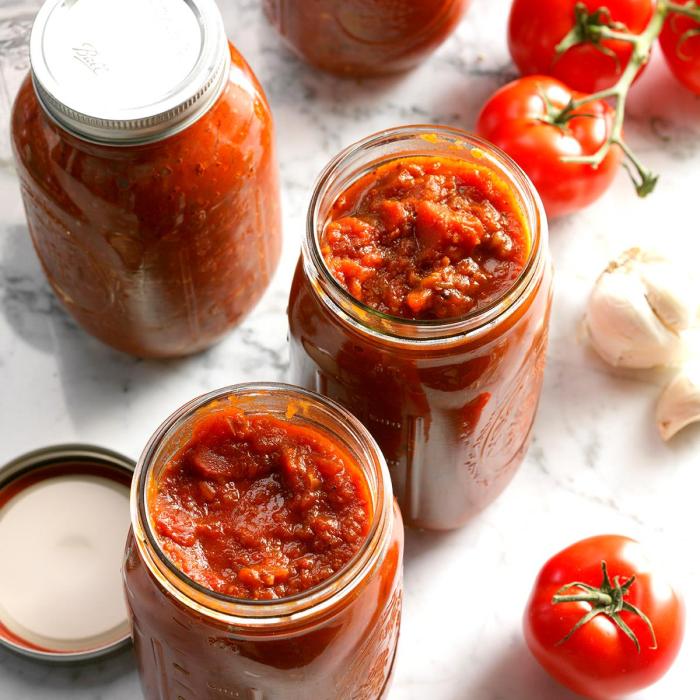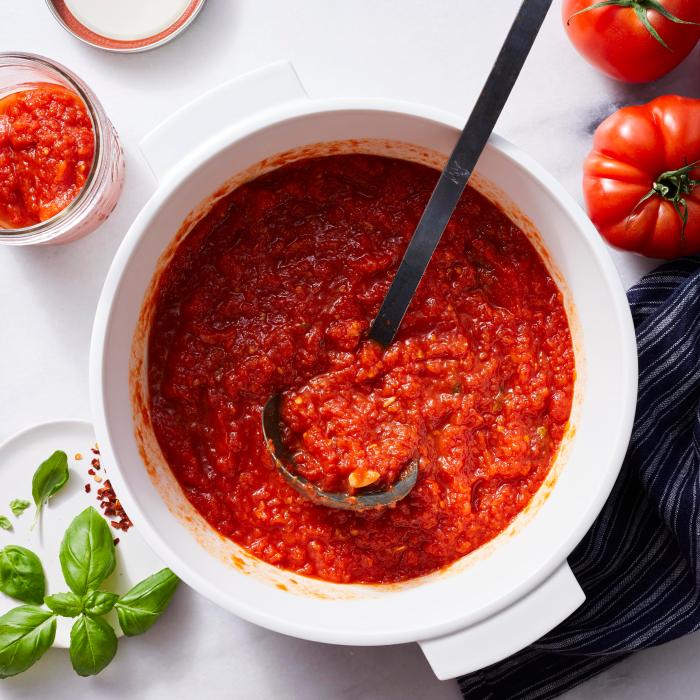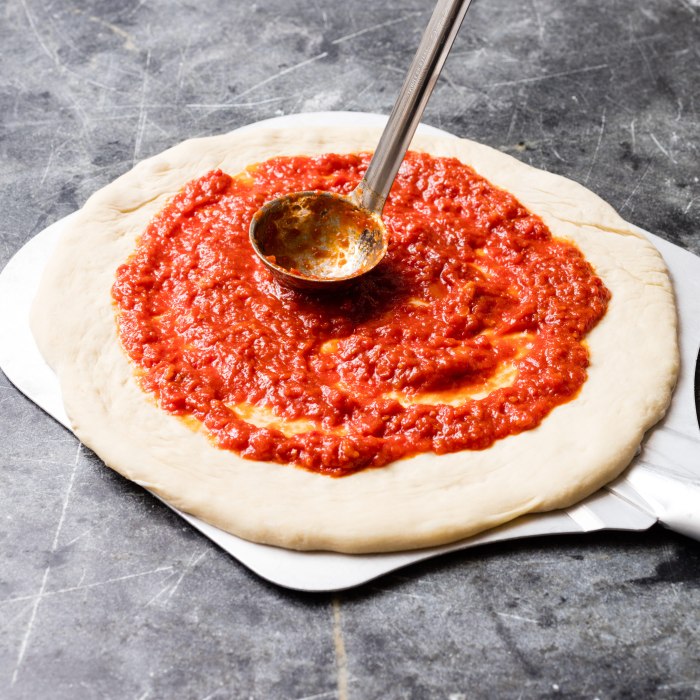BBQ Sauce Recipe Tomato Sauce Base
The World of BBQ Sauce: A Deep Dive into Tomato-Based Delights
Bbq sauce recipe tomato sauce – Barbecue sauce, a cornerstone of American cuisine, boasts a rich tapestry of flavors and regional variations. From the tangy vinegar-based sauces of the Carolinas to the sweet and smoky concoctions of the Midwest, the diversity is remarkable. This exploration delves into the fascinating world of BBQ sauces, focusing specifically on the versatile role of tomato sauce as a foundational element, guiding you through its creation and customization.
BBQ Sauce Variations: A Flavorful Journey
BBQ sauce styles exhibit significant regional differences, reflecting local culinary traditions and ingredient availability. Vinegar-based sauces, prevalent in the Carolinas, offer a sharp, acidic profile, often complemented by pepper and spices. Mustard-based sauces, common in the South, provide a creamy texture and subtly tangy flavor. Tomato-based sauces, the focus of this article, offer a richer, sweeter foundation, adaptable to a wide range of flavor profiles.
The historical evolution of BBQ sauce traces back to indigenous methods of cooking meats over open fires, gradually evolving into the diverse range of sauces we enjoy today.
Tomato Sauce: The Heart of BBQ Flavor
Tomato sauce forms a crucial base for many BBQ sauces, providing sweetness, acidity, and a rich body. The type of tomato sauce significantly influences the final product. Crushed tomatoes offer a chunky texture, while pureed tomatoes create a smoother consistency. Diced tomatoes contribute a more pronounced tomato flavor and visible texture. The acidity of the tomato sauce balances the sweetness of other ingredients, while its inherent sweetness contributes to the overall flavor profile.
The balance between these elements is key to creating a well-rounded BBQ sauce.
Essential Ingredients and Flavor Combinations, Bbq sauce recipe tomato sauce
Beyond tomato sauce, a variety of ingredients contribute to the complexity and depth of flavor in BBQ sauces. The following table details common ingredients and their roles:
| Ingredient | Function | Flavor Profile | Possible Substitutions |
|---|---|---|---|
| Sugar (brown or granulated) | Sweetener | Sweetness, depth | Honey, molasses, maple syrup |
| Vinegar (apple cider or white) | Acidulant | Tanginess, balance | Lemon juice, lime juice |
| Worcestershire Sauce | Umami, complexity | Savory, depth | Soy sauce (adjust for salt) |
| Garlic Powder/Onion Powder | Savory depth | Savory, pungent | Fresh garlic/onion (adjust for quantity) |
| Spices (paprika, chili powder, black pepper) | Flavor enhancement | Heat, smokiness, complexity | Cayenne pepper, smoked paprika |
| Liquid Smoke | Smoky flavor | Smoky notes | Smoked paprika (for subtle smokiness) |
Three unique tomato-based BBQ sauce flavor profiles are presented below:
Sweet & Smoky: 2 cups crushed tomatoes, ½ cup brown sugar, ¼ cup apple cider vinegar, 2 tbsp Worcestershire sauce, 1 tbsp smoked paprika, 1 tsp garlic powder, ½ tsp liquid smoke.
A good BBQ sauce recipe often starts with a robust tomato sauce base, building layers of flavor from there. Interestingly, the foundational principles are similar to creating a creamy cheese sauce; for instance, a smooth texture is key to both. If you need a solid base for your cheese sauce, check out this helpful guide for a basic cheese sauce recipe for pasta , which might offer some interesting parallels for your BBQ sauce development.
Returning to BBQ sauce, remember that achieving the right balance of sweetness and tang is paramount.
Tangy & Spicy: 2 cups diced tomatoes, ¼ cup white vinegar, 2 tbsp brown sugar, 1 tbsp chili powder, 1 tsp onion powder, ½ tsp cayenne pepper.
Classic Tomato BBQ: 2 cups pureed tomatoes, ¼ cup brown sugar, 2 tbsp apple cider vinegar, 1 tbsp Worcestershire sauce, 1 tbsp paprika, 1 tsp garlic powder, ½ tsp black pepper.
BBQ Sauce Recipe Development: Methods and Procedures

Source: tmbi.com
Creating a basic tomato-based BBQ sauce is straightforward. The following steps Artikel the process:
- Combine all ingredients in a saucepan.
- Bring to a simmer over medium heat.
- Reduce heat to low and simmer for at least 30 minutes, stirring occasionally, until the sauce thickens to desired consistency.
- Taste and adjust seasoning as needed.
- Cool completely before storing.
Stovetop cooking offers precise temperature control, while slow cookers provide a hands-off approach. Smoking the sauce infuses a deep smoky flavor, but requires specialized equipment. Simmering time and temperature are critical for achieving the desired thickness and flavor development. Longer simmering times result in a thicker, more concentrated sauce.
Recipe Variations and Customization

Source: media-allrecipes.com
Adjusting sweetness, spiciness, and tanginess is easily achieved by modifying the quantities of sugar, chili powder, and vinegar, respectively. For a smoky BBQ sauce, increase the amount of smoked paprika or liquid smoke. A sweeter BBQ sauce can be made by adding more brown sugar or honey. To increase spiciness, add more chili powder or cayenne pepper. Thickening can be achieved by simmering longer or adding a cornstarch slurry.
Thinning can be done by adding a little water or broth.
Serving Suggestions and Applications

Source: cloudfront.net
Tomato-based BBQ sauces pair well with a variety of foods:
- Grilled chicken
- Pulled pork
- Ribs
- Burgers
- Vegetables
The sauce can be used for grilling, basting, marinating, or as a dipping sauce. Imagine a vibrant platter: tender, smoky pulled pork, generously coated in a rich tomato-based BBQ sauce, served alongside grilled corn on the cob brushed with the same sauce, and a side of crisp coleslaw. The deep red hue of the sauce contrasts beautifully with the golden-brown meat and vibrant green of the slaw, creating a visually appealing and flavorful meal.
Answers to Common Questions: Bbq Sauce Recipe Tomato Sauce
Can I use canned tomato sauce?
Absolutely! Canned tomato sauce is a convenient and readily available option for making BBQ sauce.
How long does homemade BBQ sauce last?
Properly stored in the refrigerator, homemade BBQ sauce can last for up to a week. For longer storage, consider freezing it in airtight containers.
What can I do if my BBQ sauce is too thick or too thin?
To thin the sauce, add a little water or broth. To thicken it, simmer uncovered for a longer period or whisk in a cornstarch slurry.
Can I use this recipe on a smoker?
Yes, this recipe is adaptable to various cooking methods, including smoking. Simply adjust the simmering time as needed for the smoker’s temperature.




















